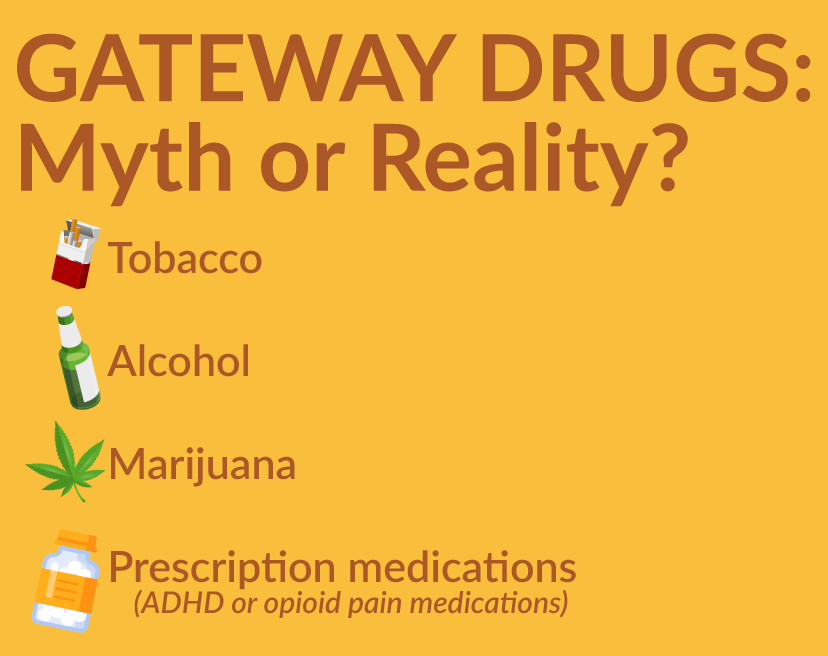This message has been drilled into our minds for decades. Similar drug catchphrases have included First Lady Nancy Reagan earnestly pleading for youth to “Just Say No” to drugs. And many who grew up in the ’80s will also remember the public service TV ad by the Partnership For A Drug Free America using symbolism with a skillet and egg.

The simple voiceover said:
“This is your brain.” (egg)
“This is drugs.” (skillet)
“This is your brain on drugs.” (egg sizzling in skillet)
“Any questions?” (commercial goes silent, except for sizzling sound)
Younger audiences can easily find this one today on YouTube with a quick search. TikTok and reddit.com may have replaced the older mediums, but such messages and catchphrases can be very impactful due to their symbolism and easy recall.
They can also cast people who struggle with addiction in a negative light, adding to their nervousness in reaching out for help with an often-stigmatized condition.
Pinnacle Peak Recovery doesn’t judge its clients when someone arrives, sometimes intoxicated, at our doors. They’re here because they recognize they need help to remove a substance from their life. Learning more about addiction is a major step at our Scottsdale, Arizona, treatment center.
Let’s delve a little deeper into clinical studies regarding the science and evidence behind the issue of drugs and addiction. More specifically, does using one type of drug make someone more likely to use another? Are there, indeed, gateway drugs?
Can alcohol lead to marijuana or vice versa? Or is alcohol OK because it’s legal, but not OK because it could also open the gate to illicit drugs such as heroin, crack, or meth?
Many studies suggest that using milder drugs opens the door to more powerful substances.

‘Gateway Drug’ Is A Controversial Phrase Often Debated
The debate has long raged as to whether there is truth to the theory that using a particular drug is a gateway to addiction or progressive use of a more dangerous substance.
As the many sides argue their points with passion, the truth remains that any substance use is not healthy when it interferes with someone’s ability to lead a productive, healthy life and maintain their social and family obligations.
- Some people worry about the use of a particular drug—with the most common examples being alcohol, tobacco, marijuana, or prescription medications—leading to the use of more illicit drugs like cocaine.
- Others may say people have individual responses to substance use in general, such as someone enjoying a few beers on the weekend.
- Their occasional use never progresses to addiction, and they never touch an illicit drug.
- Another person may also drink some beers and then find themselves sliding a slippery slope into daily drinking that has become an addiction, still never touching an illicit drug like heroin.
So what is the issue behind the gateway drug philosophy? The drug itself, the person, or perhaps a little of both?
Drug Addiction Facts Explored
There is evidence that gateway drugs may be more of an issue when looking not at the substance or the individual, but rather at the age of someone when they began to use substances in general.
That age often falls in adolescence, according to a 2016 article in Preventive Medicine Reports. A study cited in that article compared the use of substances such as marijuana, cocaine, and other drugs of people between ages 11-20 with their use when they were older, and found continued use of those particular drugs was “not consistent” in adulthood.
Family, environment, and mental health also are factors that need to be considered. The article’s authors based their findings on 14 years of research collected by the National Longitudinal Study of Adolescent to Adult health data.
Other key findings:
- Early adolescent use of typical gateway drugs (alcohol, tobacco, marijuana, and prescription drugs) generally led to later adolescent use of marijuana, other illicit drugs, and cocaine.
- Youth who received mental health counseling in adolescence were “less likely to use drugs in older adolescence and in adulthood.”
- Whether there is a connection between drug use beginning in adolescence and “later drug use in adulthood cannot be solely explained by the gateway hypothesis.”

“This evidence should include understanding that changes in behavior should involve broader analyses of the underlying social context for drug use and in particular the role of the community social norms in driving a group's behaviors.”
Nkansah-Amankra S, Minelli M. “Gateway hypothesis" and early drug use: Additional findings from tracking a population-based sample of adolescents to adulthood. Prev Med Rep. 2016
One reason the debate exists is that there are multiple sources of statistics, such as longitudinal data from the 2016 National Epidemiological Study of Alcohol Use and Related Disorders. One study used this data to determine whether marijuana use increases the onset of alcohol use disorder (AUD).
The National Institute on Alcohol Abuse and Alcoholism defines AUD as a chronic brain disorder in which problem drinking becomes severe. These somewhat non-specific terms might be more recognizable to you if you suffer from AUD or a loved one does. Job loss, isolation, financial problems, family issues, and legal woes are all hallmark signs that someone’s continuous use of alcohol has disrupted their life.
The study’s three researchers had this summary conclusion: “Cannabis use is associated with increased risk of AUD onset and persistence over the course of three years among U.S. adults.”
But these additional factors need to be considered to get the bigger picture of why a person initially uses one drug and potentially another.
You’ve Heard of Gateway Drugs, But What About Polydrug Use?
Now that you’re familiar with the debate over the idea of gateway drugs, it’s important to realize drug use does not occur in a vacuum. That is, if you’re drinking alcohol and then start using marijuana, it’s typical that you might still drink beer when out to dinner and then come home to use marijuana.
Or perhaps your loved one uses marijuana to achieve some calm but has moved to heroin for a “daytime boost.” The term you’re looking for to define the use of multiple substances is polydrug use.
And once again, there is some evidence to support the theory that the use of one drug may increase someone’s likelihood to try another.
This idea is highlighted in a 2020 Frontiers in Neuroscience article, “One Is Not Enough: Understanding and Modeling Polysubstance Use.” The four authors, lead by Dr. Elizabeth A. Crummy, also highlight the importance of a treatment center being fully aware of the scope of all substances a person may use so they can receive effective treatment.

“Indeed, 11.3% of individuals diagnosed with a SUD have concurrent alcohol and illicit drug use disorders. Furthermore, having a SUD with one substance increases susceptibility to developing dependence on additional substances. For example, the increased risk of developing heroin dependence is twofold for alcohol misusers, threefold for cannabis users, 15-fold for cocaine users, and 40-fold for prescription misusers.”
Crummy, Elizabeth A et al. “One Is Not Enough: Understanding and Modeling Polysubstance Use.” Frontiers in Neuroscience vol. 14 569. 16 Jun. 2020
Top Reasons For Drug Use
The decision to begin using any substance is multifaceted. Here is a list of some common reasons you may check the box for because you can relate:
- I was curious
- I trusted my friend
- I wanted to feel better because I was (insert appropriate emotion here): depressed, angry, grieving, traumatized, sad, numb
- I just turned 21 and it’s legal
- I wanted to have a good time
- I needed to focus
- I needed energy
Location Can Direct Type of Use
The type of substance being used often affects whether it’s more acceptable in certain venues. At baseball games, concerts, and restaurants, people are used to seeing others drink alcoholic beverages. Because it’s legal, it might not be as taboo for young people to imitate this behavior when attending at-home parties.
On the illicit drug side, people who use heroin or meth are more likely to use it at home, rather than in public view, because they’re in a more controlled environment to enjoy the high. A person who uses cocaine may take a quick visit to a public bathroom and stroll back to their workspace or restaurant table, leaving little evidence of use because it’s easy to carry, used quickly, and generally makes a person appear super alert and full of energy.
What Are Gateway Drugs Like Marijuana Doing To Your Brain?
We associate some gateway drugs with physical dependency. For example, nicotine absorbs rapidly into your bloodstream. The stimulating buzz you get wears off quickly, leaving you wanting more. The more frequently you use nicotine, the more you want it.
Addiction isn’t limited to substances, either. Think about gambling addiction. Addiction forms due to a rewiring of neural pathways in the brain driven by our most primitive instincts. It alters a person’s habit loop, which includes the following aspects:
- Trigger
- Behavior
- Reward
When looking at marijuana misuse as an example, let’s say you use marijuana daily after work or school. The time of day would be the trigger, and using the drug is the behavior. The reward for this may be relaxation after a long day. However, that reward lays down a memory in your brain. The next time you have the same trigger, your brain wants you to do it again, and eventually, you lose control.
You can also become physically dependent on alcohol. Your body acclimates to the way it functions when you’re under the influence. You also build up a tolerance, which means you need more of the chemical to experience the same effects as you once did. Eventually, you may believe you need the substance to feel normal.
How Early Experimentation with a Gateway Drug Can Lead to Problems Later

It’s common for young people to experiment with drugs like marijuana and over-the-counter medications. Many teens—and for that matter, their parents—may believe this is no big deal, but it can be, both personally and professionally.
If a substance has been a gateway to an addiction for you or a family member, chances are you’ve been impacted by problems like a job loss, a family rift, debt from student loans when school goes unfinished, legal troubles, declining health conditions, and possibly jail time.
If you’re facing such problems, getting help to achieve recovery of your mind, body, and soul is your top priority and main job. Regaining interests in hobbies, achieving dreams, and living a healthy life is still achievable.
Gateway to Recovery: Find Your Addiction Treatment Program for Drugs and Alcohol
You may wonder, “What are gateway drug treatment options?” You might also ask yourself if you need addiction treatment for use of a gateway drug. Even if you feel like the substances you use aren’t powerful enough to create an addiction or control your life, you may need treatment.
The signs that you have a problem include:
- Intense craving for your drug of choice
- Withdrawal symptoms when you don’t use the substance
- Thinking about the substance all the time
- Taking inappropriate actions to obtain or use the drug

Don’t Let Drugs, Alcohol, or Addiction Hold You Down Any Longer
Pinnacle Peak Recovery provides a regularly updated blog page of educational material to give you or your loved one the necessary information for understanding how addiction develops.
At Pinnacle Peak Recovery, we offer many addiction treatment programs, including:
- Alcohol
- Marijuana
- Hallucinogens
- Heroin
- Cocaine
- Prescription drugs
- Methamphetamine
We can help you retake control of your life beginning with our detox center, addiction treatment center, and outpatient programs for drug and alcohol addiction. Our extensive and individualized continuum of care has a holistic approach with evidence-based treatments led by master’s-level therapists. We believe in healing the mind, body, and spirit.
Throughout your experience, we are committed to providing clinical excellence, compassionate care, and a family feel. Call us today at 866-377-4761.
Does Your Loved One Need Help With Substance Use Disorder? Call Us Today!
FAQs:
What Are Gateway Drugs?
Substances that can increase someone’s likelihood to move on to more illicit and dangerous drugs are considered gateway drugs.
What Are Some Gateway Drugs?
Marijuana, tobacco, alcohol, and prescription drugs are generally considered to be gateway drugs when that term is referenced.
